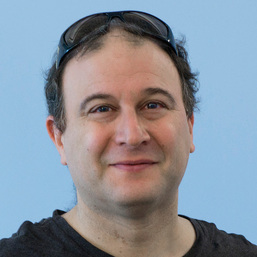.jpg)
Opinion | Eviction undermines university authority
Since the 2015 Maagdenhuis occupation, the UvA administration has had protesting students forcibly removed from university premises by the police on at least three occasions. This is quite often disconcerting, also because it undermines the authority of the university, argues professor of political theory Eric Schliesser.
Let me say this: I can well imagine going straight to the police if students vandalize other people's property or threaten other students or staff. Reason may be vulnerable without law, but the authority of a university ultimately lies in the force of argument. This is the intellectual authority of the university and its employees in society. By this I do not mean anything mystical or woolly, I mean by this that we as a university are pre-eminently the place where neither big money nor majority votes count, but where evidence and expertise have the last word and from which our knowledge and our social status and influence derive. Yes, that authority is framed by laws, a good deal of pragmatism, and tradition, but in the end, it is no more than a framework.
Intellectual authority
Violence, even legitimate violence, once set in motion, is at odds with the intellectual authority of the university. After all, there is no room for substantive discussion with a police baton. Now you can argue that a group of students wants to impose its position with an occupation. But there is an important difference between violating property rights to draw attention to something, as the occupiers did last week, and responding to it with (the threat of) physical violence, as happened last week with the eviction of the premises of the former Amsterdam Academic Club.
In addition, the university also has an educational task in loco parentis, i.e., alongside or instead of the parent(s). This can sometimes lead to being paternalistic, which in Amsterdam we sometimes feel a bit uncomfortable with. But part of that educational task is teaching students how to argue and giving them space to learn how to protest. And sometimes this also means learning from their arguments and views. The latter is what often makes working at a university exciting and inspiring.
Cynical
Students who argue that scientists should not be allowed to do research (on “green” energy) with money from Shell threaten the academic freedom of those scientists, assuming they have that freedom in this. Sometimes universities greenwash questionable money. That is in our nature, but it can simultaneously undermine our intellectual authority. Therefore, as a university community, we should always be receptive to being questioned about this. But it is even more cynical to talk about academic freedom or a "constructive conversation" if this can only be done on the terms of the Executive Board.
I can imagine a better use for the space of the former Amsterdam Academic Club than a place for free debate, a place that – and now I quote the occupiers – “is not under pressure from the UvA's neoliberal politics.” Jokingly, I would say: we are cramped for space in the political science department. But the laughter has since worn off, now that I know that some of the protesters ended up in jail because as a university community, we apparently put our property rights above substantive discussion. I also wonder if by leaning so emphatically on the government' s monopoly on violence, we are training a generation of activists to think that only violence makes sense.
Degradation of Maagdenhuis
Sometimes it seems like “the lesson of 2015” has degenerated into “never allow occupation of a university building again” instead of “don't call in the police if you have already won.” From a risk management perspective, I can even well imagine that. But there is also a great risk that this will make the university no longer dare to believe in its own intellectual authority. If so, then we are very vulnerable to be swayed by the delusion of the day and to political forces that never tolerate a counterargument.
Eric Schliesser is full professor of political science at the UvA.

.jpg)
